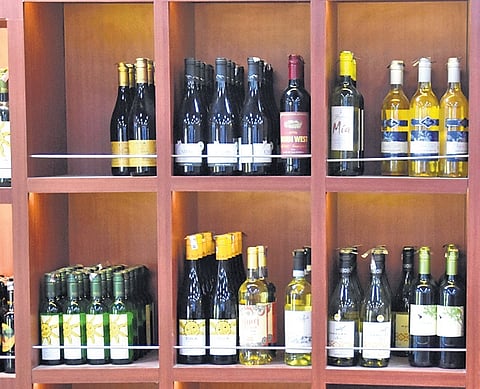

CHENNAI : A report by the office of the Comptroller and Auditor General of India has flagged potential cartelisation in the tender process of Tasmac to transport stock from its depots to vending shops, stating that same entities were awarded tenders by accepting bids in physical form despite the department coming out with mechanisms for e-tender since December 8, 2017.
The report, Compliance Audit (Revenue) for 2021-22, which was tabled in the Assembly on Saturday, said the “issue is not flagged by the internal control system of the company”. When potential cartelisation in tender process in a few entities was pointed out on September 2022, Tasmac replied that it had no choice but to choose from those who applied.
“Tasmac should have realised that limited participation in the tender may be due to cartelisation and should have taken effective measures to publicise the tender process widely. The reply only highlights failure of Tasmac to rectify the shortcomings in the transport tender process,” the report said.
The report further highlighted loopholes in the tender process where in one of the successful bidders since 2019 to 2021 did not possess GSTIN, which is mandatory as per the tender conditions. The fitness certificate and insurance of a few trucks used for transport had elapsed even as on the date of submission of tender documents.
Audit also verified from VAHAN portal that one of the lorries was actually a tanker. Despite all these deficiencies, the bidder was awarded tender for 2019-21 and renewed for 2021-23. The report also hit out at the government for its “untenable reply” to the issue and said the tender was defective and invalid.
The report also said the check of records in eight out of 43 depots revealed that Tasmac did not pay differential excise duty of Rs 30.50 crore due to revision of rates of IMFL, although maximum retail price was revised based on this revision.
Meanwhile, another report for 2017-22 tabled in the Assembly said the Tamil Nadu Construction Workers Welfare Board had processed 7,459 claims worth Rs 2.26 crore that were paid to potentially ineligible persons and allowed 9,116 potentially ineligible persons to avail pension benefits under the board, resulting in an annual liability of Rs 10.94 crores.
A total of 27,943 potentially ineligible persons received Rs 5.78 crore of Covid 19 cash assistance, but 1.64 lakh workers (14% of workers eligible) were not issued the assistance due to database issues, the audit found.
The absence of a system to reconcile the collection of labour cess by local bodies with the actual receipts by the construction workers welfare board resulted in misappropriation, short remittance, delayed and wrong remittances of cess. Tax collected at source by various agencies are retained by themselves, are short remitted or wrongly remitted in inappropriate accounts, the report said.